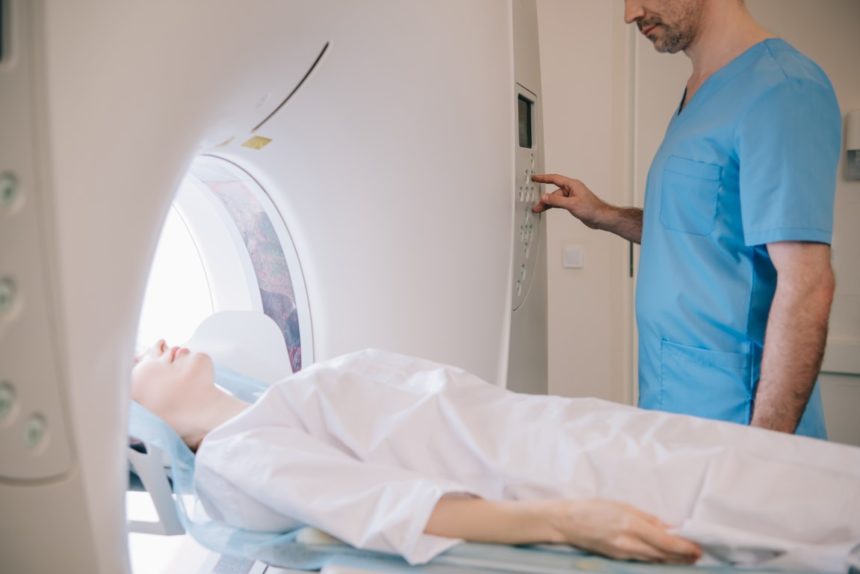One of the many services provided by the specialists at Vital Imaging is the PET-CT scan (Positron Emission Tomography – Computed Tomography scan). This advanced imaging modality is not only safe and effective, it decreases radiation exposure by 50% and reduces scanning time for the patient. But, most importantly, it provides physicians with high-quality images that help to detect cancer cells as small as a pencil point.
What is a PET Scan?
PET or positron emission tomography is often referred to as PET scanning and is a simple yet non-invasive diagnostic imaging technology. It’s a form of nuclear medicine that uses a small quantity of radioactive material for the early detection of disease and illness, specifically cancer. As an imaging test, it is used to show how your organs and tissues are functioning.
Other diagnostic imaging modalities such as CT scans, MRIs, and X-rays show structural changes within the body whereas PET scans are used to reveal changes of a chemical or psychological nature. These help to diagnose the diseases accurately.
Common uses for PET scans include:
- Checking brain function
- Determining the spread of cancer and the response of the disease to therapy
- Diagnosing brain disorders, cancer, and heart problems
- Examining blood flow to the heart
PET scans help doctors detect the presence of cancer cells and where they’re located. While it is similar to a CT scan, a PET scan can accurately detect living cancer tissue.
Common Reasons for getting a PET Scan
PET scans are used to examine blood flow, organ and tissue metabolism, and oxygen intake. Additionally, they can detect problems at the cellular level and provide your doctor the most accurate view of the more complex systemic diseases. These scans are commonly used for the detection of:
- Brain disorders – the brain’s main fuel is sugar glucose. Since the scan detects radioactive glucose, it detects the areas of the brain that are using the highest amounts of glucose, thereby helping to diagnose and manage central nervous system disorders.
- Cancer – due to their elevated levels of chemical activity, cancer cells appear as bright spots in a PET scan. As a result, PET scans are effective for detecting recurrent or new cancers.
- Heart problems – because healthy heart tissue takes in more tracers than tissue with a decreased blood flow, different levels of brightness and colors on the scan indicate the different tissue function levels.
Our diagnostic center is equipped with state-of-the-art digital imaging devices to help patients get the correct diagnosis. Most doctors prefer to get all the tests done after the imaging results come.
To learn more on how to schedule an appointment for a PET-CT scan, call Vital Imaging at (305) 596-9992 today.

